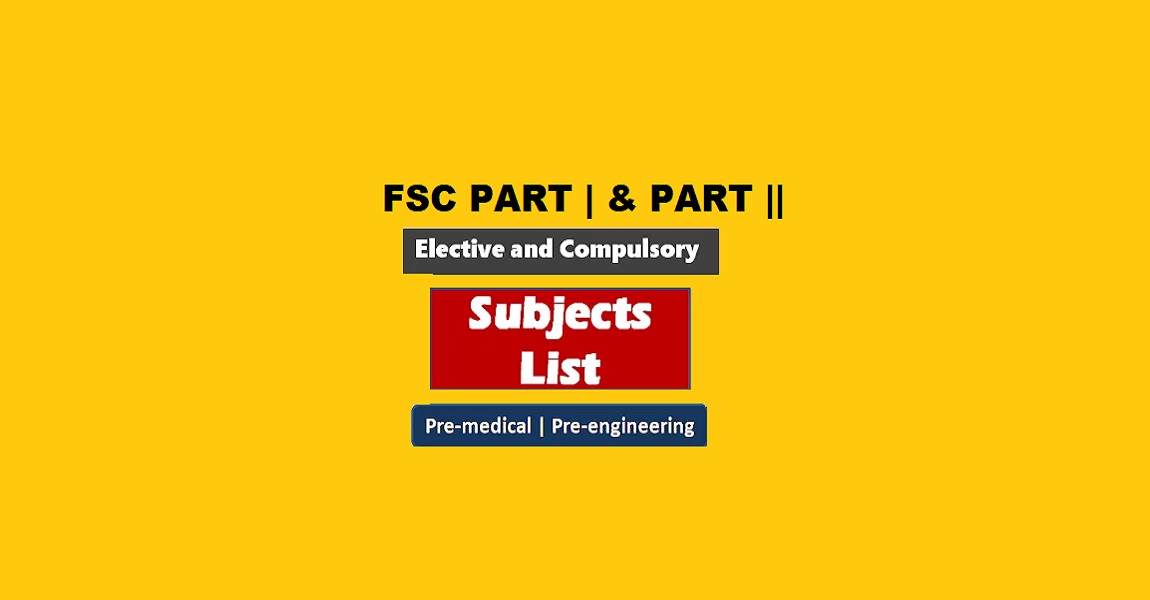If you’re about to step into the world of intermediate education in Pakistan, you might be curious about FSC (Faculty of Science) and its various branches. Choosing the right path can set the stage for your future studies and career. Let’s dive into the different types of FSC and what each one entails.
Understanding FSC:
FSC, or Faculty of Science, is a two-year intermediate program in Pakistan offered after matriculation (10th grade). It is designed to provide students with a solid foundation in scientific principles and prepare them for higher education in various science-related fields.
Types of FSC:
There are primarily two main streams of FSC: Pre-Medical and Pre-Engineering. Each stream focuses on different subjects and caters to different career paths.
1. FSC Pre-Medical:
Focus: Biology and Life Sciences
Subjects:
- Biology: Understanding living organisms, their structure, function, growth, and evolution.
- Physics: Fundamental principles governing the physical world, such as mechanics, thermodynamics, and electromagnetism.
- Chemistry: Study of matter, its properties, composition, and reactions.
- Compulsory Subjects: English, Urdu, Pakistan Studies, and Islamic Studies (for 1st year) or Ethics (for non-Muslims).
Who Should Choose It?
- Aspiring Doctors: Those who aim to pursue careers in medicine (MBBS), dentistry (BDS), pharmacy, or other health sciences.
- Life Science Enthusiasts: Students interested in fields like biotechnology, microbiology, genetics, and environmental science.
Career Pathways:
- Medical colleges for MBBS or BDS
- Pharmacy or pharmacology
- Biotechnology and genetic engineering
- Veterinary sciences
- Environmental science and ecology
2. FSC Pre-Engineering:
Focus: Mathematics and Physical Sciences
Subjects:
- Mathematics: Advanced topics such as calculus, algebra, trigonometry, and geometry.
- Physics: Detailed study of the laws of physics, including mechanics, optics, waves, and modern physics.
- Chemistry: In-depth exploration of chemical reactions, periodic table, organic and inorganic chemistry.
- Compulsory Subjects: English, Urdu, Pakistan Studies, and Islamic Studies (for 1st year) or Ethics (for non-Muslims).
Who Should Choose It?
- Aspiring Engineers: Those who wish to pursue careers in various engineering fields like civil, mechanical, electrical, or software engineering.
- Math and Physics Enthusiasts: Students who enjoy problem-solving and have a strong interest in physical sciences and mathematics.
Career Pathways:
- Engineering universities for degrees in civil, mechanical, electrical, software, or chemical engineering
- Computer science and information technology
- Architecture
- Physics and mathematics research
Making the Right Choice:
Choosing between Pre-Medical and Pre-Engineering depends largely on your interests, strengths, and career aspirations. Here are a few tips to help you decide:
- Assess Your Interests:
- Do you enjoy learning about living organisms and the human body? Pre-Medical might be for you.
- Are you more inclined towards mathematics and understanding the physical laws of nature? Consider Pre-Engineering.
- Consider Your Strengths:
- If you excel in biology and have a keen interest in health sciences, Pre-Medical is a suitable choice.
- If you have a strong aptitude for mathematics and physics, Pre-Engineering could be the better option.
- Explore Career Goals:
- Think about where you see yourself in the future. If you dream of becoming a doctor, pharmacist, or biotechnologist, Pre-Medical is the way to go.
- If you envision a career in engineering, technology, or architecture, Pre-Engineering will set you on the right path.
Conclusion:
FSC is a crucial stepping stone in your educational journey, and choosing the right stream is essential for your future career. Whether you opt for Pre-Medical or Pre-Engineering, each path offers unique opportunities and prepares you for a range of professional fields. Assess your interests, strengths, and career aspirations to make an informed decision that aligns with your goals and sets you up for success.



